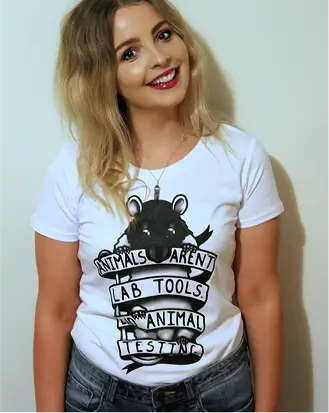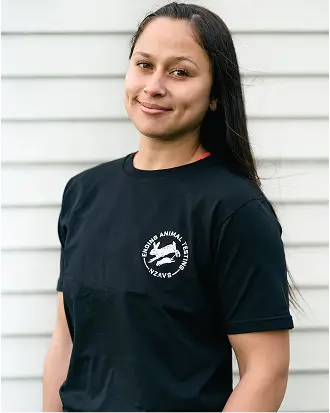Bans on Animal Testing
Cosmetics testing
According to the Humane Society, there are currently 44 countries prohibiting cosmetics testing on animals.1
Examples include:
- The EU (27 countries) banned the testing of finished cosmetic products on animals in 2004, and in 2009 the testing of ingredients for cosmetics,2 followed in March 2013 by the ban on the sale of cosmetics that had been tested in animals.3
- Israel banned the testing of cosmetics on animals in 1994, with some exceptions.4 The ban on the import, sale, and marketing of cosmetics that were tested on animals came into force gradually.5
- Animal testing for cosmetics and sale of such products were banned in Norway in 2006, effective from 2009.6
- India banned animal testing for cosmetics in 2013, and the import of such products in 2014.7
- Turkey prohibited animal testing for cosmetics in 2015 under the Cosmetics Regulation.8
- Ecuador established a prohibition of testing cosmetics on animals in 2017, coming into effect a year later.9
- Taiwan banned cosmetic animal testing in 2018, coming into effect a year later.10
- South Korea introduced a ban on animal testing for cosmetics and sale of animal-tested cosmetics that came into force in 2018.11
- Australia, after having had several states ban it, passed legislation banning animal testing data to be used for cosmetics in 2020.12
- Mexico prohibited the testing of cosmetic products or their ingredients on animals, as well as the import of such products (with exceptions) in 2022.13
- A Colombian law, signed in 2020, will come into effect in 2024, prohibiting cosmetic testing on animals.14
- Canada passed the prohibition of animal testing for cosmetics in 2023. As of 2024, Canada prohibits animal testing for cosmetics and the sale of such cosmetics.15
- Brazil passed a resolution in 2023 to ban testing of personal hygiene products, cosmetics and perfumes on animals, given the ingredients are already known or alternative methods are available.16
- The USA do not have country-wide bans in place, but several states within do. For example, New Jersey banned cosmetics testing in 2007, with exceptions,17 and California banned cosmetics testing18 given there is “an appropriate alternative test method” in 2018. Most recently, Oregon joined in, banning the sale of cosmetics that were developed using animal testing from January 2024.19
Complete or partial bans on animal testing
San Marino passed Law no 108 in 2007, prohibiting all forms of animal experimentation in the small country.20
The OECD has deleted their guideline for the LD50 test, in 2002.21 This notorious oral toxicity test was used to determine the dose of a substance that killed 50% of the test animals. They are also continuously adding more animal-free methods to their guidelines.22
While not yet banning animal experimentation, the U.S. government is now allowing research and development of new drugs to base their applications on alternative methods.23 So, while this is only one little step, at least scientists now have the option to steer clear of animal testing and use more human-relevant methods.
The Taiwanese FDA announced in February 2022 to forbid animal testing to prove blood pressure effects of Health Foods.24
Pakistan banned live testing on animals in vet colleges and industrial complexes in their capital city region (Islamabad Capital Territory) in 2022.25
California banned toxicology tests on dogs and cats in 2022.26
What about NZ?
The following relevant prohibitions are in place in NZ:
1. The Psychoactive Substances Act 2013 prohibits the consideration of data from animal tests (that have been conducted in NZ) for assessing the safety of psychoactive products.
2. The Animal Welfare Act 1999 prohibits the use of gorillas, chimpanzees, bonobos, and orangutans (non-human hominids) unless approved by the Director-General.
3. The Animal Welfare Act 1999 also prohibits the use of animals for developing, making, or testing a cosmetic or developing, making, or testing an ingredient that is intended exclusively for use in a cosmetic in NZ.
However, this does not include:
- Using animals to test an ingredient that is used in cosmetics but is being used for another purpose.
- The sale and importation of cosmetics that have been tested on animals in NZ.
- https://www.humanesociety.org/resources/cosmetics-animal-testing-faq
- https://eur-lex.europa.eu/legal-content/EN/TXT/PDF/?uri=CELEX:32009R1223
- https://eur-lex.europa.eu/legal-content/EN/TXT/?uri=CELEX:52013DC0135
- https://in.bgu.ac.il/fohs/AnimalFacility/Documents/forResearchers/%D7%97%D7%95%D7%A7%20%D7%A6%D7%A2%D7%91%D7%97%20%D7%A0%D7%99%D7%A1%D7%95%D7%99%D7%99%D7%9D%20%D7%91%D7%91%D7%A2%D7%97%20%D7%AA%D7%A9%D7%A0%D7%93.pdf
- https://knesset.gov.il/tql/knesset_new/knesset17/HTML_28_03_2012_04-57-19-PM/20070626@03841507@013.html
- https://lovdata.no/dokument/SF/forskrift/2013-04-08-391
- https://cdsco.gov.in/opencms/export/sites/CDSCO_WEB/Pdf-documents/acts_rules/2016DrugsandCosmeticsAct1940Rules1945.pdf
- https://www.resmigazete.gov.tr/eskiler/2015/07/20150715M2-2.htm
- https://www.ambiente.gob.ec/wp-content/uploads/downloads/2018/01/CODIGO_ORGANICO_AMBIENTE.pdf
- https://law.moj.gov.tw/LawClass/LawAll.aspx?pcode=L0030013
- https://www.law.go.kr/%EB%B2%95%EB%A0%B9/%ED%99%94%EC%9E%A5%ED%92%88%EB%B2%95
- https://www.legislation.gov.au/Details/C2019A00012
- http://www.diputados.gob.mx/LeyesBiblio/pdf/LGS.pdf
- https://dapre.presidencia.gov.co/normativa/normativa/LEY%202047%20DEL%2010%20DE%20AGOSTO%20DE%202020.pdf
- https://www.parl.ca/DocumentViewer/en/44-1/bill/C-47/royal-assent
- https://www.in.gov.br/web/dou/-/resolucao-n-58-de-24-de-fevereiro-de-2023-466792333
- https://www.njleg.state.nj.us/bill-search/2006/A909
- https://leginfo.legislature.ca.gov/faces/billTextClient.xhtml?bill_id=201720180SB1249
- https://olis.oregonlegislature.gov/liz/2023R1/Downloads/MeasureDocument/HB3213/Enrolled
- https://www.consigliograndeegenerale.sm/on-line/home/archivio-leggi-decreti-e-regolamenti/documento17023596.html
- https://www.oecd-ilibrary.org/environment/test-no-401-acute-oral-toxicity_9789264040113-en
- https://www.oecd.org/env/ehs/testing/oecdguidelinesforthetestingofchemicals.htm
- https://www.congress.gov/bill/117th-congress/house-bill/2617
- https://www.fda.gov.tw/TC/newsContent.aspx?cid=4&id=t600842
- https://www.arabnews.pk/node/2114161/pakistan
- https://leginfo.legislature.ca.gov/faces/billTextClient.xhtml?bill_id=202120220SB879





